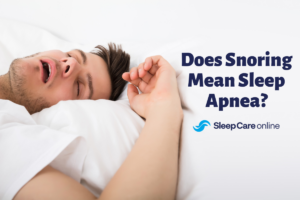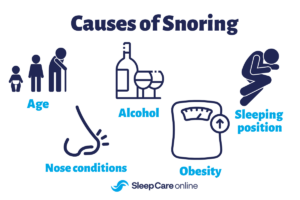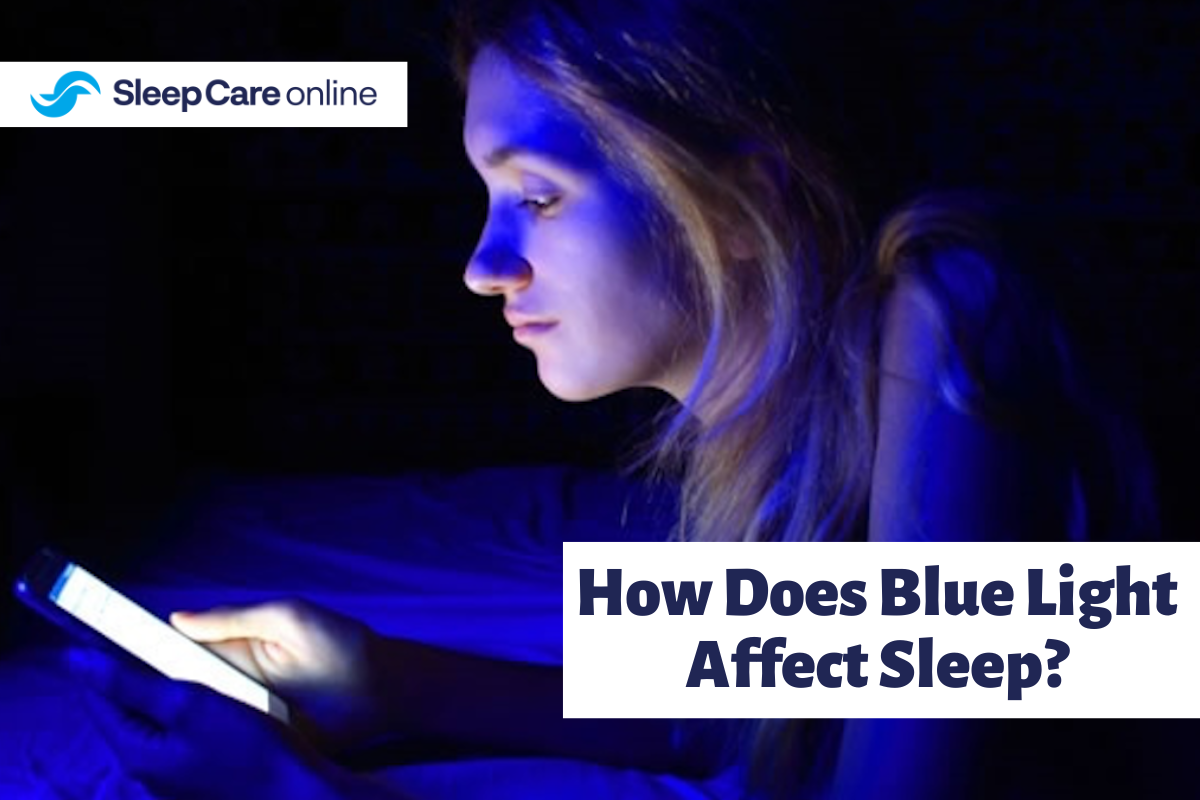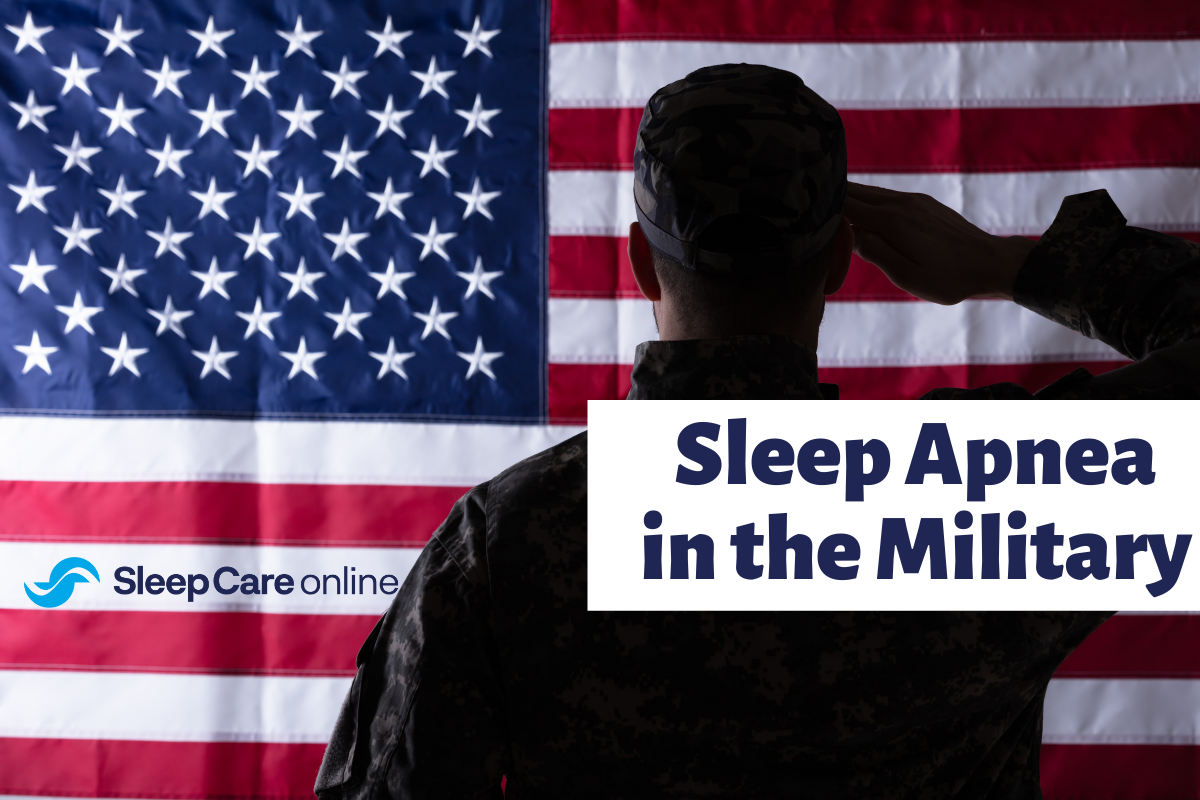
What Causes Snoring?
Snoring is caused by a disruption of airflow in the throat while you sleep. This sound, which could potentially be loud and bothersome to others, is caused by the vibration of tissues in your mouth, nose, and throat. Typically, the relaxation of throat muscles forces the airway to narrow and produces the rough sound of snoring as disrupted air flows in and out of the mouth and nose. Some common causes of snoring also include:
- Obesity
- Smoking cigarettes
- Drinking excessive alcohol
- Your sleeping position
- Nasal congestion
- Tonsil swelling
How To Tell If Snoring Could Mean You Have Sleep Apnea
Sleep apnea patients snore differently. Your bed partner may notice that periods of snoring are followed by gasps for air—this is a strong indicator that you have sleep apnea. If your snoring follows this pattern consistently throughout the night, then you may want to consider getting tested for sleep apnea.
Difference Between Snoring and Sleep Apnea
Snoring disrupts air flow, but it never stops your breathing entirely. A chronic snorer may snore all night without any effect on breathing. Sleep apnea closes the airway for brief periods which often causes gasping for air—a sudden disruption of breathing— that is an indicator of the sleep disorder.
Can I Have Sleep Apnea Without Snoring?
Nearly everyone snores when they sleep. As many as 44% of people snore regularly. While you should pay attention to your sleep behavior and consider whether it is a symptom of sleep apnea, there are other reasons why you may be snoring.
- Aging. As we age our throat muscles become more relaxed which causes snoring.
- Nose or throat conditions. A deviated septum or enlarged tonsils may cause snoring.
- Alcohol use. Alcohol can contribute to snoring, especially when consuming alcohol near bedtime.
- Obesity: Being overweight reduces tone in throat muscles. Snoring may occur nightly as a result.
- Sleep position: Often snoring may simply be due to the way you sleep. Changing position, especially sleeping in an elevated position, can reduce snoring.
Treatments For Snoring
If snoring is not a symptom of sleep apnea, then there are some common lifestyle changes you can make to help reduce the problem.
- Lose weight. Reduced body weight minimizes the fatty tissue around the throat that can contribute to snoring.
- Reduce alcohol consumption. Drink less or avoid alcoholic beverages near bedtime.
- Quit smoking: smoking can restrict the airway and cause snoring.
- Sleep in an elevated position. Sitting up while you sleep can reduce or eliminate snoring by helping to keep the airway open.
Treatments For Sleep Apnea
If your snoring is related to sleep apnea, you may require professional medical treatment. Your doctor may prescribe CPAP therapy. CPAP therapy uses a CPAP machine to maintain pressurized air flow into the throat at night to prevent the airway from closing. Staying CPAP compliant is one of the best ways to prevent sleep apnea from interrupting your sleep and affecting your health.
How Do You Know You Have Sleep Apnea?
Getting tested is easy. Home sleep tests can be conducted in the privacy and comfort of your own home. If you do snore and find yourself continuously drowsy during the day from lack of sleep, it may be time for a sleep apnea home test. Learn more at Sleep Care Online.





